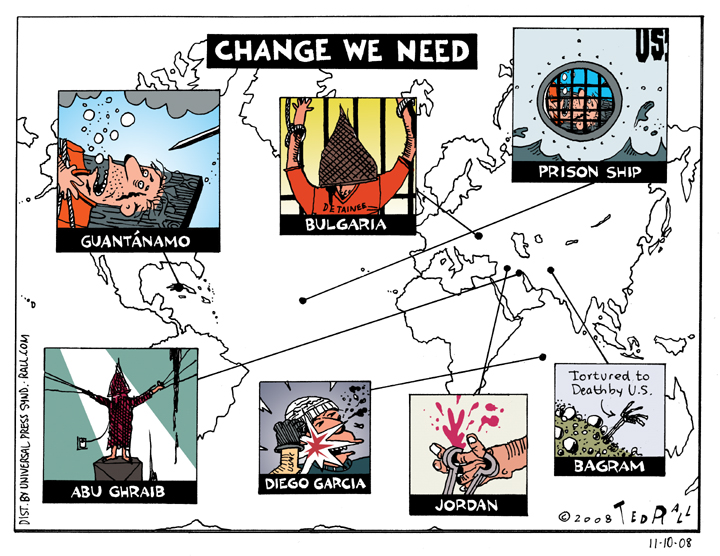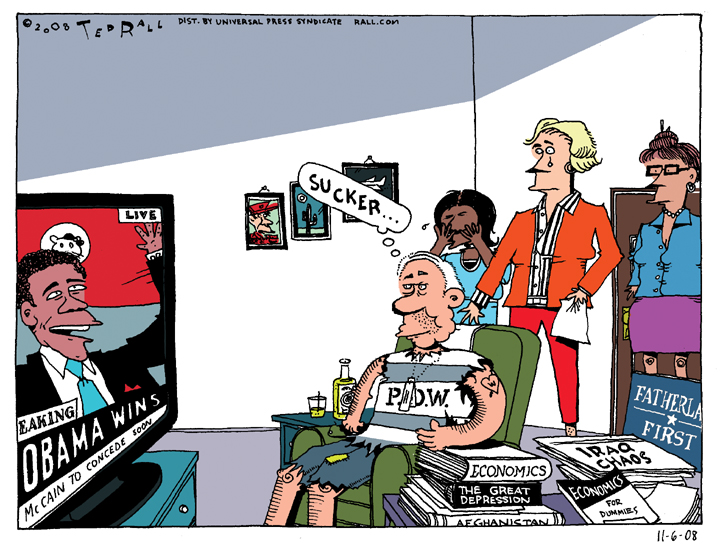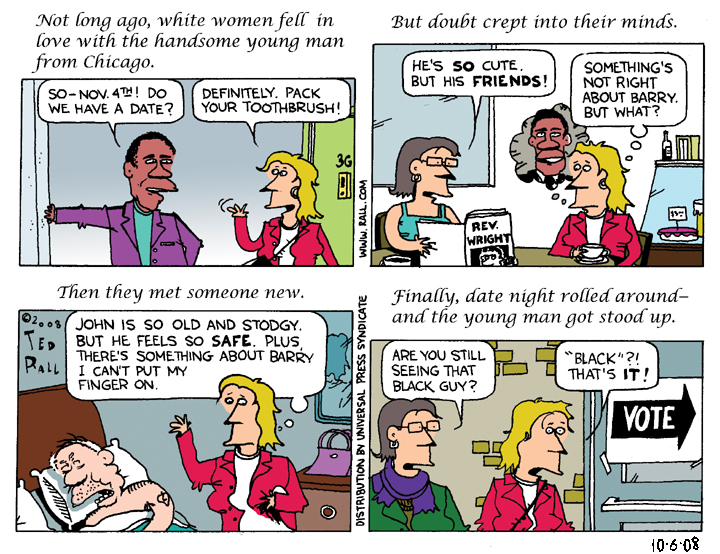On Tuesday night, Obama opined:
Even as we stand here tonight, we know there are brave Americans waking up in the deserts of Iraq and the mountains of Afghanistan to risk their lives for us.
What a maroon. The election results were still being tabulated, and he had already swallowed the right-wing Kool Aid.
Newsflash: The wars against the peoples of Afghanistan and Iraq are not designed to keep us safe. They are designed to keep us afraid. You can’t keep people nervous without recruiting new enemies.
Anyone who thinks Obama is a progressive has only to read that idiotic quote.





